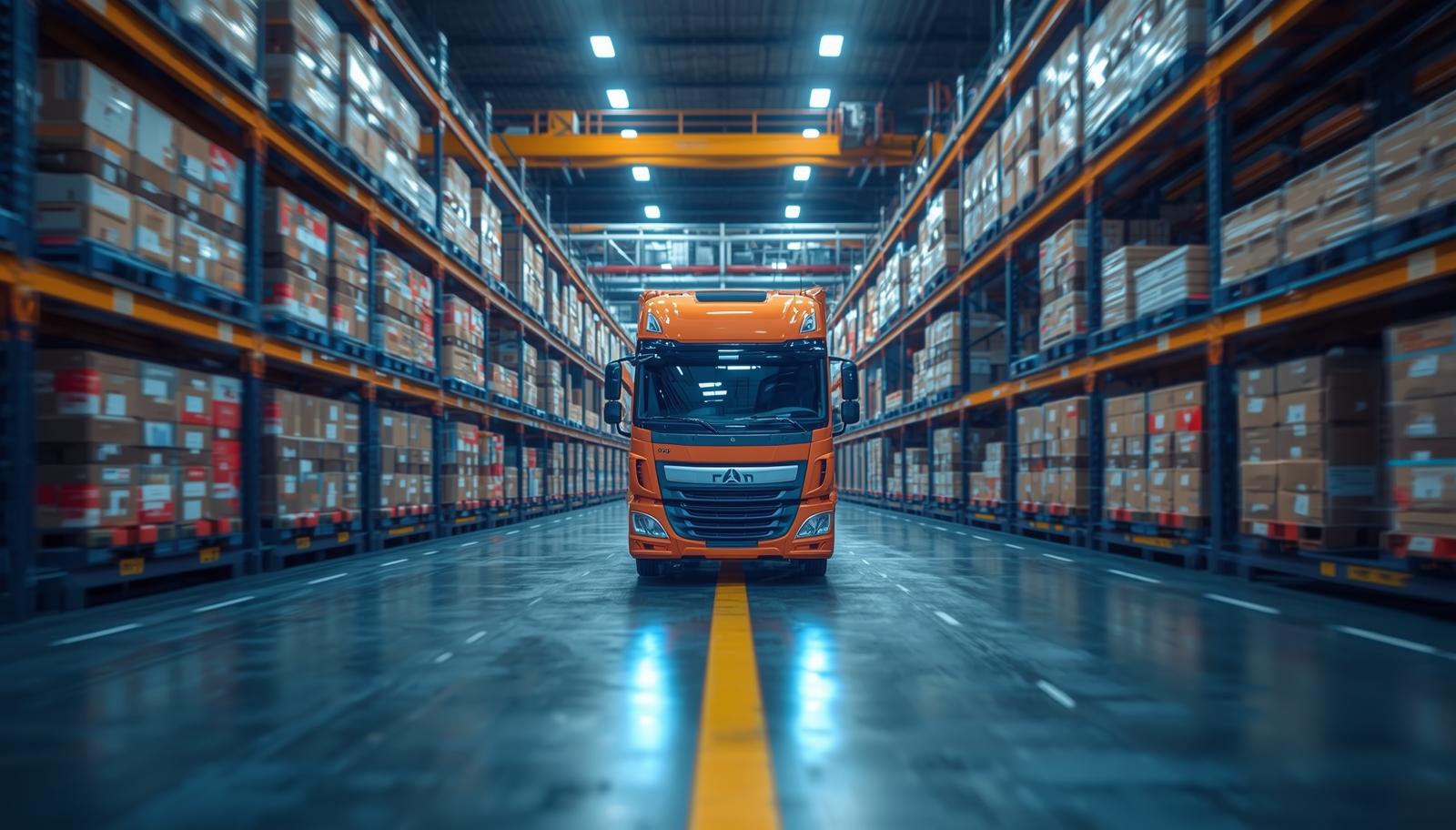
Saudi Arabia’s Vision 2030 is a strategic framework to reduce the country’s dependence on oil, diversify its economy, and develop public service sectors such as health, education, infrastructure, recreation, and tourism. Spearheaded by Crown Prince Mohammed bin Salman, this ambitious initiative aims to transform the Kingdom into a global investment powerhouse and a hub connecting three continents: Asia, Africa, and Europe.
Significance for the Logistics Sector
For the Saudi logistics ecosystem, Vision 2030 represents a transformative journey. The vision identifies this sector as a pivotal element of the economy, aiming to capitalize on the Kingdom’s strategic geographical location to evolve into a leading global logistics hub. This transformation is envisioned through the modernization of infrastructure, adoption of technology, and enhancement of operational efficiencies.
Setting the Stage for Transformation
Pre-Vision 2030 Scenario
Challenges in the Logistics Sector
Prior to Vision 2030, Saudi Arabia’s logistics framework faced several challenges, including an over-reliance on oil exports, underutilized geographic positioning, and regulatory barriers that hindered its integration into the global logistics network.
Saudi Arabia’s Strategic Position
Despite these challenges, the Kingdom’s strategic location at the crossroads of key trade routes between Asia, Europe, and Africa presents unparalleled opportunities for becoming a logistics epicenter.
Vision 2030: Catalyst for Change
Strategic Objectives
Vision 2030 sets forth ambitious goals to overhaul the logistics and transportation sectors, aiming to streamline operations, foster innovation, and significantly boost the country’s logistics capabilities.
Pillars of Transformation
The strategy rests on three pillars: diversifying the economy through the development of various sectors, including logistics; enhancing the quality of life for residents; and positioning Saudi Arabia as an influential player on the global stage.
Infrastructure Development Under Vision 2030
Mega Projects and Their Roles
NEOM
NEOM, envisioned as a futuristic megacity, exemplifies Saudi Arabia’s ambition to drive growth through cutting-edge technology and sustainable practices, serving as a blueprint for urban and logistical advancements.
The Red Sea Project
This tourism project aims to leverage the Kingdom’s pristine coastal resources, enhancing its global tourism and logistics profile by improving accessibility and infrastructure.
Riyadh Metro
As a part of urban mobility enhancement, the Riyadh Metro project is set to revolutionize transportation within the capital, easing congestion and connecting key economic zones.
Enhancing Connectivity and Efficiency
These infrastructure megaprojects are integral to Saudi Arabia’s logistics overhaul, aimed at reducing transit times, increasing cargo capacity, and facilitating seamless trade flows, both domestically and internationally.
Innovation and Diversification Strategies
Diversifying Beyond Oil
Central to Vision 2030 is the reduction of Saudi Arabia’s reliance on oil revenues, with a strategic shift towards diversifying its economy. The vision highlights the logistics sector as a key area for expansion, aiming to leverage the kingdom’s geographic advantage to enhance its role in global trade and logistics networks.
Technological Advancements in Logistics
Digitalization and Smart Solutions
The integration of digital technologies such as the Internet of Things (IoT), artificial intelligence (AI), and blockchain is transforming the logistics sector. These technologies improve efficiency, transparency, and security across supply chains, positioning Saudi Arabia at the forefront of logistical innovation.
Sustainability Initiatives
Vision 2030 also emphasizes sustainable development within the logistics sector. Initiatives focus on reducing the environmental impact of logistics operations, incorporating renewable energy sources, and promoting eco-friendly transportation solutions.
Regulatory Reforms and Investment Surge
Streamlining Operations
A significant aspect of Vision 2030 is the overhaul of regulatory frameworks to facilitate smoother logistics operations. Simplifying customs processes, reducing bureaucratic hurdles, and enhancing the ease of doing business are among the key reforms aimed at attracting global logistics players and investment.
Attracting Foreign Investments
To become a global logistics hub, Saudi Arabia is actively seeking foreign investments in its logistics infrastructure and services. The vision’s ambitious projects and reforms are designed to create an attractive environment for international logistics companies and investors, contributing to the sector’s growth and innovation.
The Role of Digital Transformation and Sustainability
Adopting Green Practices
Vision 2030 places a strong emphasis on environmental sustainability, with the logistics sector playing a crucial role in adopting green practices. Initiatives include the development of green logistics solutions, such as sustainable warehousing and eco-friendly vehicle fleets, aligning with global trends towards reducing carbon footprints.
Leveraging E-commerce Growth
The rapid growth of e-commerce in Saudi Arabia is reshaping the logistics landscape. Vision 2030 aims to capitalize on this trend by enhancing e-commerce logistics capabilities, focusing on efficient last-mile delivery services and advanced warehousing technologies, to meet the rising consumer demand for online shopping.
Technological Integration
The vision encourages the adoption of advanced technologies in logistics operations, from automated warehousing systems to drones for delivery, to improve service quality and operational efficiency. This technological integration is essential for maintaining competitiveness in the rapidly evolving global logistics sector.
Human Capital Development and Job Creation
Education and Training
Investing in human capital is a key pillar of Vision 2030, with a focus on developing a skilled workforce capable of driving the logistics sector forward. Initiatives include specialized training programs and partnerships with educational institutions to equip Saudi citizens with the necessary skills for careers in logistics and supply chain management.
Expanding Employment Opportunities
The transformation of the logistics sector under Vision 2030 is expected to create a wide range of job opportunities. From technical roles in transportation and warehousing to professional positions in supply chain management, the sector’s growth will contribute significantly to employment and economic diversification.
Global Connectivity and Strategic Partnerships
Enhancing Global Trade Links
Vision 2030 aims to strengthen Saudi Arabia’s position as a key player in global logistics by enhancing its connectivity and trade links. Improvements in infrastructure and streamlined trade processes are designed to facilitate easier access to international markets, promoting Saudi Arabia as a central hub for global trade.
Collaborations and Joint Ventures
To accelerate the development of its logistics capabilities, Saudi Arabia is pursuing collaborations and joint ventures with leading international logistics companies. These partnerships bring expertise, technology, and investment into the kingdom, supporting its ambition to become a world-class logistics hub.
Navigating Challenges and Looking Ahead
Implementation Hurdles
While Vision 2030 presents a bold vision for the future, implementing its ambitious projects and reforms poses significant challenges. Coordination among various stakeholders, managing the pace of development, and adapting to technological advancements are critical factors for success.
Balancing Growth with Sustainability
As Saudi Arabia advances its logistics sector, ensuring sustainable growth remains a priority. Balancing economic development with environmental protection and social responsibility is key to achieving the vision’s long-term goals.
Wahyd Logistics: Pioneering Vision 2030’s Logistics Aspirations
Integrating Innovations for a Modern Logistics Landscape
Wahyd Logistics emerges as a critical player in the transformative journey outlined by Vision 2030, embodying the innovation and efficiency at the heart of Saudi Arabia’s logistics sector overhaul.
As a company at the forefront of technological adoption and logistical excellence, Wahyd Logistics is not just participating in the change; it’s leading it.
By leveraging cutting-edge technologies such as artificial intelligence (AI), the Internet of Things (IoT), and blockchain, Wahyd Logistics optimizes the efficiency, reliability, and transparency of logistics operations, aligning perfectly with Vision 2030’s emphasis on innovation and modernization.
Championing Sustainability and Efficiency
Wahyd Logistics’ commitment to sustainability positions it as a beacon for the sector’s future direction. Through the adoption of eco-friendly practices and vehicles, the company plays a pivotal role in reducing the environmental footprint of logistics operations.
This commitment resonates with Vision 2030’s sustainability goals, showcasing how economic growth and environmental stewardship can go hand in hand.
Empowering E-commerce and Enhancing Global Connectivity
With the e-commerce boom within the Kingdom, Wahyd Logistics stands as a key enabler, innovating to meet the surging demand for efficient and reliable delivery services.
The company’s investment in developing tailored e-commerce logistics solutions exemplifies its role in supporting the digital economy, a crucial aspect of Vision 2030.
Moreover, Wahyd Logistics’ efforts to expand its global network and forge strategic alliances underscore its contribution to Saudi Arabia’s ambition of becoming a global logistics hub, enhancing the Kingdom’s connectivity and accessibility on the international stage.
Realizing the Vision for a Global Logistics Hub
Summary of Key Points
Vision 2030 represents a transformative roadmap for Saudi Arabia, with the logistics sector at its heart. By addressing challenges, leveraging strategic advantages, and investing in infrastructure, technology, and human capital, the kingdom is well-positioned to realize its ambition of becoming a leading global logistics hub.
The Path Forward
As Saudi Arabia continues to implement Vision 2030, the logistics sector stands as a testament to the kingdom’s commitment to innovation, sustainability, and global connectivity. The success of this vision will not only enhance Saudi Arabia’s position in the global logistics landscape but also ensure a prosperous future for its economy and people.






